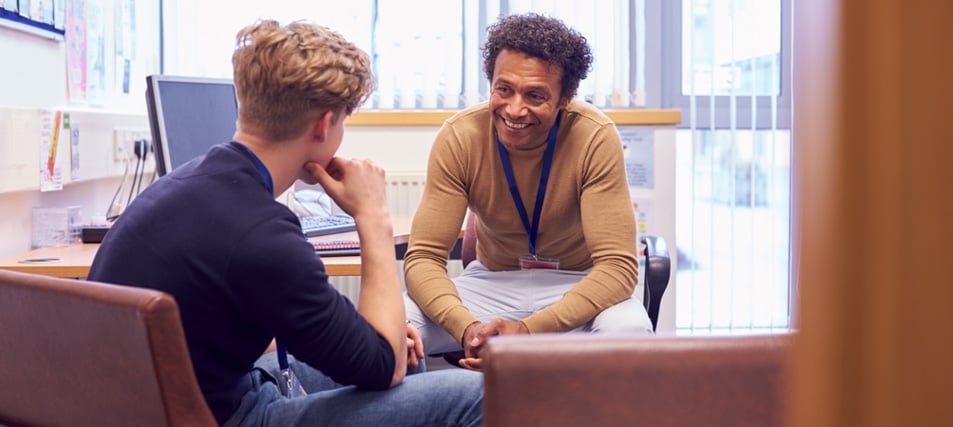Resources / Explore Your Options
Get Help From Your College Counselor

Your college counselor probably knows more about colleges than anyone else you know. And they know a lot about something else important — you.
It's a good idea to make an appointment with your high school guidance counselor as soon as you begin thinking about college, but certainly by the end of your sophomore year. It's up to you to ask for help — and schedule appointments as you need them.
1. Your Counselor Can Help You Plan Ahead for College
In your initial discussions about college, your counselor will listen to your thoughts, answer questions, ask questions, let you know what lies ahead, and discuss how you can meet your goals. He or she can also meet with your parents and you to discuss the college application process and answer questions.
Your counselor will have a good idea of the requirements of many colleges, particularly those in your state and region and can help you plan your course load so you take the courses colleges will require.
2. Your Counselor Can Help You Find Out About Colleges
Your counselor may invite college representatives to your high school, take groups of students on tours of colleges, and connect you with helpful contacts, such as people who have attended colleges you're interested in.
3. Your Counselor Can Help You Get Into College
Your counselor will provide letters of recommendation, send transcripts and financial aid documents to colleges, and review your college essays and applications. Your counselor may even help make your case with college admissions officers.
Your counselor can also advise you about your chances for admission at certain colleges and what you can do to improve your chances, such as scores to shoot for on the SAT or ACT and which honors or Advanced Placement courses you should take.
4. Get Additional Counseling If Necessary
If your school doesn't have a college counselor, you might get assistance from someone else at your school. A teacher, your principal, or another administrator might fill that role. Even someone at a local youth group might be helpful. If you need extra help you might turn to an outside college counselor. There are also many nonprofit organizations that offer college advising, including the College Board.
- Working with an outside counselor. A private, independent college counselor may give you more personal attention and suggest colleges that match your personality and goals. This person will probably review your applications in depth, especially your essay. Independent counselors usually charge a fee. Some non-profit organizations provide free or low-cost college counseling services to low-income students.
- Finding an outside counselor. Finding a counselor that is a good fit for you may require some research. Ask your parents to help. They can talk with parents who have worked with local independent counselors. You may find private, independent college counselors in your area from the National Association for College Admission Counseling, the Independent Educational Consultants Association. Your school counselor also may know of independent counselors in your area.



